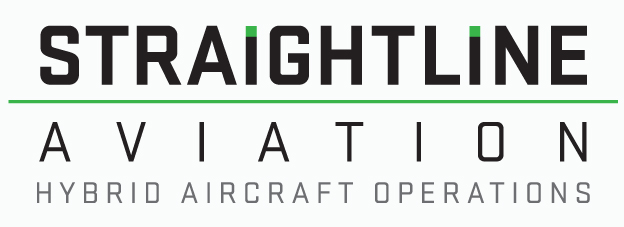How Straightline Aviation’s Hybrid Airships Will Transform the Transport of Perishable Goods
Billions of people around the world live without access to traditional transport infrastructure such as roads, railways, airports and seaports. This lack of connectivity has far-reaching consequences for remote and indigenous communities, affecting nearly every aspect of life: healthcare, education, nutrition, economic development and social mobility.
In many of these regions, the absence of basic infrastructure also means a lack of cold chain systems: reliable refrigeration and temperature-controlled transport. This makes the movement and storage of perishable goods, such as fresh food, medicines and vaccines, not only a difficult but often a wasteful process.
Ahead of the United Nations’ International Day of Zero Waste on 30th March, this article explores the humanitarian and financial impact of waste in the perishable goods supply chain and highlights how Straightline Aviation’s hybrid airships offer a cost-effective, environmentally responsible solution.
The Cold Chain Crisis in Remote Regions
Globally, an estimated 14% of food produced never reaches consumers due to spoilage in the supply chain. Of this, around 526 million tons, roughly 12% of global production, is lost annually due to inadequate refrigeration alone. The impact is most acute in remote, rural areas where roads are unreliable, electricity is scarce and cold storage is non-existent. Wherever it occurs, waste costs money.
Transporting fresh produce or fish to market can take days, if it’s possible at all, leading to high spoilage rates and devastating losses for farmers and communities. In Kenya, for example, an estimated 40 – 50% of all food is lost or wasted between farm and fork due to poor cold chain infrastructure, amounting to a staggering $1.5 billion worth of produce lost in a single year. Even on established routes to market for items such as fresh flowers, wastage can be high.
For countries where agriculture is a primary livelihood, these losses act as a brake on economic growth and trap communities in cycles of poverty. The other way around is also true - for consumers in these regions, the few perishable goods that do reach them are expensive and limited in nutritional value, exacerbating food insecurity and malnutrition.
Food poverty protestors in Nunavut, Canada
In one remote area of Brazil, for example, the government’s school meal programme found it nearly impossible to include fresh fruits and vegetables on the menu due to high spoilage rates. Elsewhere in the Amazon, fishermen face the daily dilemma of selling their catch immediately at below market prices or letting it spoil for lack of refrigeration.
Lost Vaccines, Lost Lives
It’s not just food. The World Health Organisation estimates that up to 50% of vaccines are wasted worldwide, primarily due to failures in the cold chain. Most vaccines must be kept within strict temperature ranges to remain effective. Once outside those limits, they become unusable, sometimes within hours. Conflict zones and natural disasters further compound the problem, often destroying existing cold storage facilities when they’re needed most.
This lack of adequate cold chain infrastructure is a major but solvable obstacle to improving health in areas where medical provision is limited. Traditional infrastructure projects, however, are often prohibitively expensive and environmentally destructive. Carving highways through the Amazon or building major airports in Alaska’s wilderness isn’t just unfeasible – it’s unacceptable and unnecessary.
Straightline Aviation’s medical support hybrid airship in partnership with RAD-AID
The Straightline Aviation Solution
Enter Straightline Aviation’s Z1 hybrid airship: a game-changing platform designed to connect the unconnected.
The Z1 is a modern, helium-filled hybrid airship capable of delivering up to 21.3 tons of cargo over a range of 1,400 nautical miles without requiring roads, runways or port facilities. With its unique ability to land on almost any flat surface, the Z1 opens direct, reliable access to even the most remote regions of the world.
In cold-chain configuration, the Z1 features a large cargo bay equipped to carry custom-designed refrigerated containers, based on standard ISO dimensions. These containers, powered in-flight by the airship itself, can transport a wide range of temperature-sensitive products, from fresh produce to dairy, fish, pharmaceuticals and vaccines.
Ground operations are equally efficient. Using rugged MultiTrak ground protection mats and hand operated, battery-powered tugs, the Z1 can be loaded and unloaded virtually anywhere – on dirt, sand, grass, ice or snow. Consider Borba, a remote town in Amazonas, Brazil: it’s a ten-hour road journey from the state capital, Manaus. The Z1 can make the same trip in under 90 minutes.
By enabling rapid, direct transport from source to market, the Z1 will significantly reduce food waste, boost farmer incomes, lower consumer prices and improve the diversity and quality of food in isolated communities. In places where food loss currently exceeds 40%, a shift to airship-based cold transport could reduce spoilage to single-digit percentages: comparable to rates in developed countries.
Beyond food, the Z1 can carry temperature-sensitive medicines and vaccines directly to clinics and health posts in underserved areas, enhancing healthcare outcomes and supporting public health campaigns. With its low emissions, lower operating costs, and higher payload efficiency than traditional aircraft, the Z1 is a sustainable, scalable solution to the global cold-chain crisis.
Hybrid airships are not a dream of some distant future – they’re coming. And with the Z1, Straightline Aviation is ready to revolutionise how the world moves perishable goods, bringing life-changing connectivity to the places that need it most.


